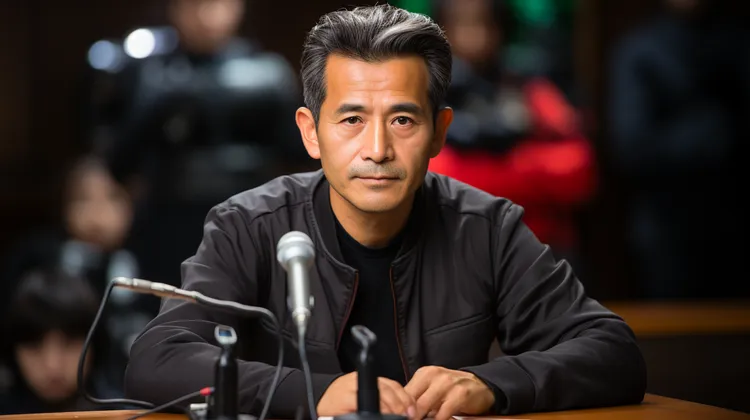
Mandatory Crypto Disclosure for South Korean Officials
South Korea has always been at the forefront of technological adoption, and its engagement with digital assets is no exception. In a groundbreaking move, the government has introduced legislation that mandates high-ranking officials to disclose their cryptocurrency holdings. This marks a significant step in the journey towards transparency and sets a precedent in the governance of the digital economy.
The decision was driven by concerns over potential conflicts of interest and corruption that may arise from undisclosed crypto assets. South Korea’s leadership recognizes that as digital currencies continue to grow in popularity, the traditional frameworks of financial disclosure must evolve accordingly. This initiative ensures that public officials are held accountable and that their investment activities remain transparent to the public eye.
Starting in 2023, all high-ranking government officials are required to declare their cryptocurrency investments along with their other assets during regular financial disclosures. The Korean government has defined high-ranking officials as those in positions where financial conflicts of interest could be of significant concern. This includes politicians, senior civil servants, and even members of the judiciary.
The new policy expressly mandates that officials disclose not only their own holdings but also those of their spouses and dependents. The aim is to close any potential loopholes that might otherwise be exploited to conceal significant investments in the crypto market. By doing so, the South Korean government enhances the integrity of its institutions, reassuring citizens of its commitment to fairness and ethical conduct.
Crypto disclosures are expected to cover all manners of digital assets, including popular cryptocurrencies like Bitcoin and Ethereum, as well as lesser-known tokens and initial coin offerings (ICOs). The information must encompass the type of asset, the volume of holdings, and their value. This creates a comprehensive picture that reflects any significant financial stake an official might have in the digital currency space.
Critics of the initiative have raised concerns about privacy and the security risks associated with the exposure of detailed crypto asset holdings. The South Korean government has assured that the disclosed data will be safeguarded with the utmost care, balancing transparency with the need to protect sensitive personal information.
In implementing this policy, South Korea has become a model for other countries grappling with similar issues. As crypto assets become an increasingly regular part of investment portfolios worldwide, transparency in ownership, particularly among those in public service, is vital to maintaining trust in the economic system and government institutions.
The disclosure policy also serves as a deterrent against using crypto assets for illicit activities such as bribery or money laundering. The anonymous nature of many cryptocurrency transactions has often been highlighted as a challenge for regulatory bodies. By bringing these assets to light among its officials, South Korea is proactively reducing the likelihood of unethical practices.
To enforce the new rules, the South Korean government has established penalties for non-compliance. Officials who fail to report their cryptocurrency holdings or deliberately provide false information will face disciplinary actions, which may include dismissal from their positions. This strict enforcement underscores the government’s resolution in promoting ethical standards.
Civil society organizations and governance watchdogs have welcomed the move, praising the South Korean government for its leadership in this sphere. They see the crypto disclosure requirements as a natural extension of existing asset disclosure laws, necessary to keep pace with financial innovation.
In preparation for this transition, training programs are being conducted for South Korean officials to familiarize them with the nuances of cryptocurrencies and the technicalities of the disclosure process. This educational approach is crucial in ensuring that officials can accurately report their holdings and fully understand the importance of compliance.
The introduction of mandatory crypto disclosure by South Korea sets a benchmark for regulatory responses to the burgeoning digital asset markets. It reflects a clear understanding that the future of finance is one that includes cryptocurrencies alongside traditional assets. As other nations observe the South Korean precedent, it is likely that we will see similar measures being considered globally to uphold the principles of transparency and integrity that are foundational to public trust.
South Korea’s decision to require high-ranking officials to disclose their cryptocurrency holdings is a progressive and practical response to the realities of modern finance. It stands as a testament to the nation’s commitment to ethical governance and may well inspire similar actions around the world, reinforcing the push for greater transparency in all sectors of the economy.